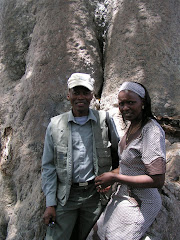Is it possible to eliminate child labor in our communities?
Yes, it is possible to eliminate child labor... Here’s how you can eliminate child labor...
Children are the future of the country therefore the society must ensure that their healthy development is promoted. This is compromised by involvement in the worst forms of child labor and by engaging in other forms of work that are likely to be harmful to their health and welfare.
This post describes the strategy to be followed to address such kinds of work. It is referred to as the National Action Plan towards the Elimination of Child labor (APEC).
The APEC has been put in place to reduce the chances of children becoming involved in the worst forms of labor or other forms of work that might be detrimental to their health and development. When developing this strategy it was important to consult widely to determine what, within the Botswana context, should be regarded as work that might be detrimental to a child and therefore termed ‘child labor’.
Work in and of itself is not necessarily harmful to children. It can often be beneficial to children. An ILO document acknowledges that “the absence of work….can condemn the child to a variety of social, moral and health risks’. In addition when identifying the kinds of work that may be considered beneficial or harmful to children it is important to consider cultural views, which differ from community to community.
The African Charter on the Rights and Welfare of the Child explicitly acknowledges that children have a responsibility to assist their families and communities in case of need, and to learn skills in the process. Therefore throughout the APEC it is acknowledged that work by children, such as reasonable household chores and fetching water and wood can be beneficial to children.
Household chores can teach them skills and impart a sense of responsibility that will help ensure that the young people of today become positive and able adults in the future. However, even activities that would be wholesome if done in moderation can become problematic when they interfere with a child’s development. For example, when household chores take so long that children miss school or do not have time for homework, then government needs to consider whether it is possible to do something to improve the situation of such children.
Subscribe to:
Post Comments (Atom)











No comments:
Post a Comment